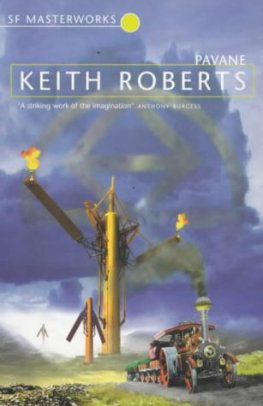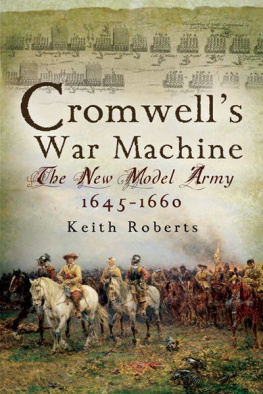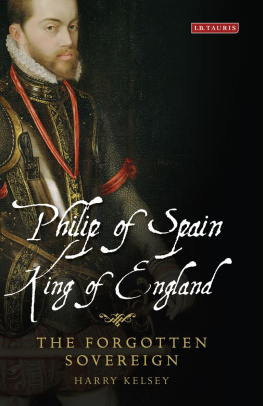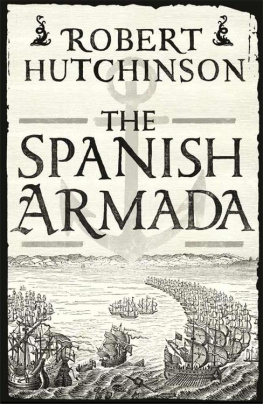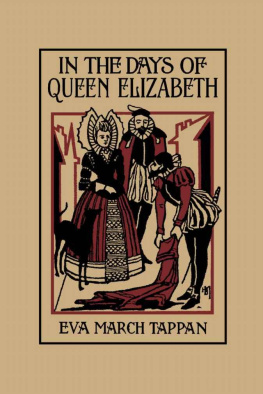Keith Roberts - Pavane
Here you can read online Keith Roberts - Pavane full text of the book (entire story) in english for free. Download pdf and epub, get meaning, cover and reviews about this ebook. City: London, year: 2000, publisher: Millennium Paperbacks, genre: Science fiction. Description of the work, (preface) as well as reviews are available. Best literature library LitArk.com created for fans of good reading and offers a wide selection of genres:
Romance novel
Science fiction
Adventure
Detective
Science
History
Home and family
Prose
Art
Politics
Computer
Non-fiction
Religion
Business
Children
Humor
Choose a favorite category and find really read worthwhile books. Enjoy immersion in the world of imagination, feel the emotions of the characters or learn something new for yourself, make an fascinating discovery.
- Book:Pavane
- Author:
- Publisher:Millennium Paperbacks
- Genre:
- Year:2000
- City:London
- ISBN:978-1857989373
- Rating:4 / 5
- Favourites:Add to favourites
- Your mark:
- 80
- 1
- 2
- 3
- 4
- 5
Pavane: summary, description and annotation
We offer to read an annotation, description, summary or preface (depends on what the author of the book "Pavane" wrote himself). If you haven't found the necessary information about the book — write in the comments, we will try to find it.
Pavane — read online for free the complete book (whole text) full work
Below is the text of the book, divided by pages. System saving the place of the last page read, allows you to conveniently read the book "Pavane" online for free, without having to search again every time where you left off. Put a bookmark, and you can go to the page where you finished reading at any time.
Font size:
Interval:
Bookmark:
Keith Roberts
PAVANE

Science Fiction Masterworks Volume 35
This aye night, this aye night,
This aye night and all,
Fire and fleet and candle-light,
And Christ receive thy saule
Enter the SF Gateway
In the last years of the twentieth century (as Wells might have put it), Gollancz, Britains oldest and most distinguished science fiction imprint, created the SF and Fantasy Masterworks series. Dedicated to re-publishing the English languages finest works of SF and Fantasy, most of which were languishing out of print at the time, they were and remain landmark lists, consummately fulfilling the original mission statement:
SF MASTERWORKS is a library of the greatest SF ever written, chosen with the help of todays leading SF writers and editors. These books show that genuinely innovative SF is as exciting today as when it was first written.
Now, as we move inexorably into the twenty-first century, we are delighted to be widening our remit even more. The realities of commercial publishing are such that vast troves of classic SF & Fantasy are almost certainly destined never again to see print. Until very recently, this meant that anyone interested in reading any of these books would have been confined to scouring second-hand bookshops. The advent of digital publishing has changed that paradigm for ever.
The technology now exists to enable us to make available, for the first time, the entire backlists of an incredibly wide range of classic and modern SF and fantasy authors. Our plan is, at its simplest, to use this technology to build on the success of the SF and Fantasy Masterworks series and to go even further.
Welcome to the new home of Science Fiction & Fantasy. Welcome to the most comprehensive electronic library of classic SFF titles ever assembled.
Welcome to the SF Gateway.
PROLOGUE
On a warm July evening of the year 1588, in the royal palace of Greenwich, London, a woman lay dying, an assassins bullets lodged in abdomen and chest. Her face was lined, her teeth blackened, and death lent her no dignity; but her last breath started echoes that ran out to shake a hemisphere. For the Faery Queen, Elizabeth the First, paramount ruler of England, was no more
The rage of the English knew no bounds. A word, a whisper was enough; a half-wit youth, torn by the mob, calling on the blessing of the Pope The English Catholics, bled white by fines, still mourning the Queen of Scots, still remembering the gory Rising of the North, were faced with fresh pogroms. Unwillingly, in self-defence, they took up arms against their countrymen as the flame lit by the Walsingham massacres ran across the land, mingling with the light of warning beacons the sullen glare of the auto-da-fe.
The news spread; to Paris, to Rome, to the strange fastness of the Escorial, where Philip II still brooded on his Enterprise of England. The word of a land torn and divided against itself reached the great ships of the Armada, threshing up past the Lizard to link with Parmas army of invasion on the Flemish coast. For a day, while Medina-Sidonia paced the decks of the San Martin, the fate of half the world hung in balance. Then his decision was made; and one by one the galleons and carracks, the galleys and the lumbering urcas turned north towards the land. Towards Hastings and the ancient battleground of Santlache, where history had been made once centuries before. The turmoil that ensued saw Philip ensconced as ruler of England; in France the followers of Guise, heartened by the victories across the Channel, finally deposed the weakened House of Valois. The War of the Three Henrys ended with the Holy League triumphant, and the Church restored once more to her ancient power.
To the victor, the spoils. With the authority of the Catholic Church assured, the rising nation of Great Britain deployed her forces in the service of the Popes, smashing the Protestants of the Netherlands, destroying the power of the German city-states in the long-drawn-out Lutheran Wars. The Newworlders of the North American continent remained under the rule of Spain; Cook planted in Australasia the cobalt flag of the Throne of Peter.
In England herself across a land half ancient and half modern, split as in primitive times by barriers of language, class, and race, the castles of medievalism still glowered; mile on mile of unfelled woodland harboured creatures of another age. To some the years that passed were years of fulfilment, of the final flowering of Gods Design; to others they were a new Dark Age, haunted by things dead and others best forgotten; bears and catamounts, dire wolves and Fairies.
Over all, the long arm of the Popes reached out to punish and reward; the Church Militant remained supreme. But by the middle of the twentieth century widespread mutterings were making themselves heard. Rebellion was once more in the air
First Measure
THE LADY MARGARET
Durnovaria, England, 1968.
The appointed morning came, and they buried Eli Strange. The coffin, black and purple drapes twitched aside, eased down into the grave; the white webbings slid through the hands of the bearers in nomine Patris, et Fili, et Spiritus Sancti The earth took back her own. And miles away Iron Margaret cried cold and wreathed with steam, drove her great sea-voice across the hills.
At three in the afternoon the engine sheds were already gloomy with the coming night. Light, blue and vague, filtered through the long strips of the skylights, showing the roof ties stark like angular metal bones. Beneath, the locomotives waited brooding, hulks twice the height of a man, their canopies brushing the rafters. The light gleamed in dull spindle shapes, here from the strappings of a boiler, there from the starred boss of a flywheel. The massive road wheels stood in pools of shadow.
Through the half-dark a man came walking. He moved steadily, whistling between his teeth, boot studs rasping on the worn brick floor. He wore the jeans and heavy reefer jacket of a haulier; the collar of the jacket was turned up against the cold. On his head was a woollen cap, once red, stained now with dirt and oil. The hair that showed beneath it was thickly black. A lamp swung in his hand, sending cusps of light flicking across the maroon livery of the engines.
He stopped by the last locomotive in line and reached up to hang the lamp from her hornplate. He stood a moment gazing at the big shapes of the engines, chafing his hands unconsciously, sensing the faint ever-present stink of smoke and oil. Then he swung onto the footplate of the loco and opened the firebox doors. He crouched, working methodically. The rake scraped against the fire bars; his breath jetted from him, rising in wisps over his shoulder. He laid the fire carefully, wadding paper, adding a crisscrossing of sticks, shovelling coal from the tender with rhythmic swings of his arms. Not too much fire to begin with, not under a cold boiler. Sudden heat meant sudden expansion and that meant cracking, leaks round the fire tube joints, endless trouble. For all their power the locos had to be cosseted like children, coaxed and persuaded to give of their best. The haulier laid the shovel aside and reached into the firebox mouth to sprinkle paraffin from a can. Then a soaked rag, a match The lucifer flared brightly, sputtering. The oil caught with a faint wkoomph. He closed the doors, opened the damper handles for draught. He straightened up, wiped his hands on cotton waste, then dropped from the footplate and began mechanically rubbing the brightwork of the engine. Over his head, long nameboards carried the style of the firm in swaggering, curlicued letters; Strange and Sons of Dorset, Hauliers. Lower, on the side of the great boiler, was the name of the engine herself. The Lady Margaret. The hulk of rag paused when it reached the brass plate; then it polished it slowly, with loving care.
Font size:
Interval:
Bookmark:
Similar books «Pavane»
Look at similar books to Pavane. We have selected literature similar in name and meaning in the hope of providing readers with more options to find new, interesting, not yet read works.
Discussion, reviews of the book Pavane and just readers' own opinions. Leave your comments, write what you think about the work, its meaning or the main characters. Specify what exactly you liked and what you didn't like, and why you think so.

